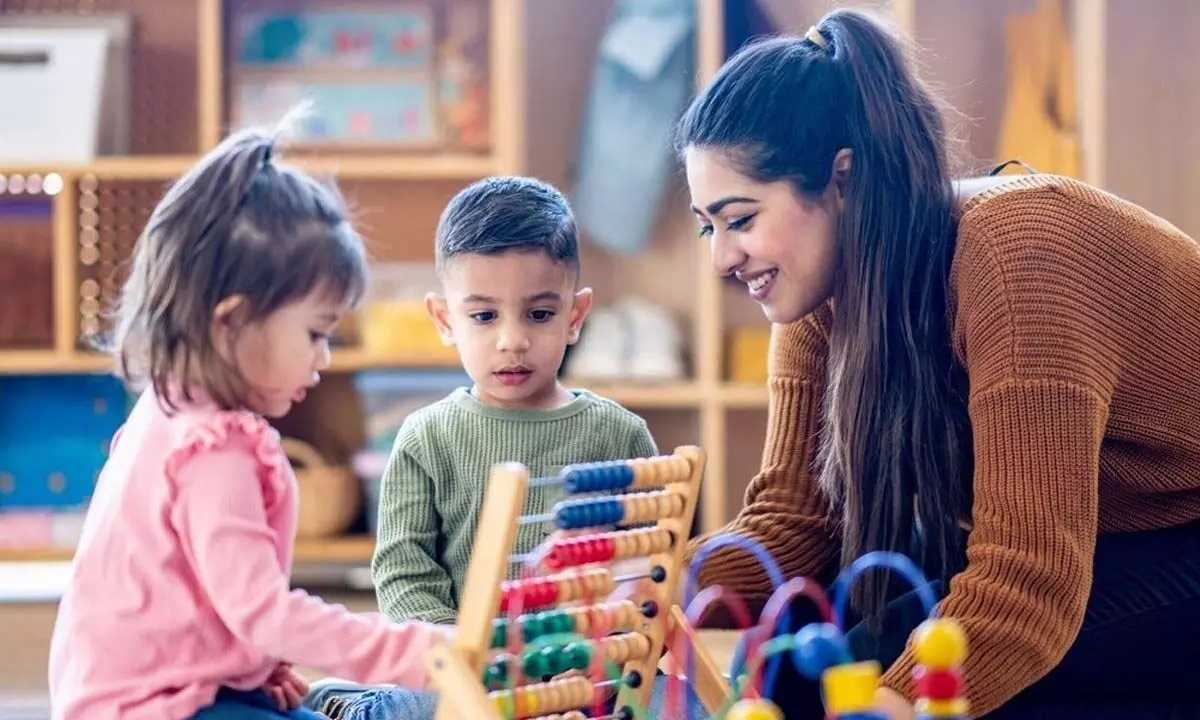Nurturing young minds: Role of play in early childhood education

In today’s rapidly changing educational landscape, the significance of play in early childhood development is being re-examined.
In today’s rapidly changing educational landscape, the significance of play in early childhood development is being re-examined. Once seen as a simple pastime, play is now recognized as a fundamental pillar of learning. But with evolving educational goals and diverse approaches, the role of structured versus free play is at the forefront of discussion. Understanding how different types of play impact cognitive and socio-emotional growth is essential for creating environments that nurture well-rounded individuals.
Structured Play: Building the Foundations of Learning
Structured play involves organized activities with clear objectives and guidelines. Think of games with rules, puzzles, or teacher-led exercises. These activities are carefully designed to foster focus, problem-solving skills, and cognitive development in young children.
Children engaging in structured play learn to follow directions, practice discipline, and achieve set goals. These experiences help develop their capacity for logical thinking and task completion. Structured play often mimics academic settings, giving children an early introduction to skills like counting, pattern recognition, and literacy. Additionally, this type of play instills a sense of patience and emotional regulation, as children must wait their turn, cope with setbacks, and navigate the rules of the game.
Free Play: Unleashing Creativity and Independence
In contrast, free play gives children the freedom to explore, imagine, and create without the confines of specific rules or objectives. Whether building castles out of blocks or pretending to be superheroes, children use their creativity to invent their own worlds. Free play is instrumental in developing autonomy and decision-making skills as children decide how to engage with their surroundings.
This unstructured form of play also enhances social skills. When children play together, they negotiate roles, solve conflicts, and collaborate—all of which are vital for developing empathy, communication, and teamwork. Free play encourages emotional expression and helps children process their experiences, fostering resilience and self-awareness.
A Holistic Approach to Play
The key to optimal child development lies in balancing structured and free play. One type should not dominate the other; rather, both offer distinct benefits that complement each other. Structured play builds the cognitive scaffolding needed for academic success, while free play nurtures the social and emotional abilities essential for navigating life’s complexities.
By incorporating both types of play, educators and parents can create a well-rounded developmental environment. Structured activities sharpen children’s cognitive skills, while free play encourages their creativity, independence, and social interaction. This balanced approach prepares children not just for the classroom, but for the world beyond it.
The Future of Play in Education
As education systems evolve, a more dynamic and integrated approach to play should be adopted. Embracing both guided learning and unstructured exploration allows children to develop holistically—academically, socially, and emotionally.
The future of early childhood education lies in recognizing the profound impact that both structured and free play have on young minds and ensuring that children are given the freedom to grow in all directions.
In the journey of nurturing future generations, play remains an irreplaceable tool, unlocking the full potential of children and preparing them for the challenges and opportunities of tomorrow.
(The author is CEO, Zee Learn Ltd)















